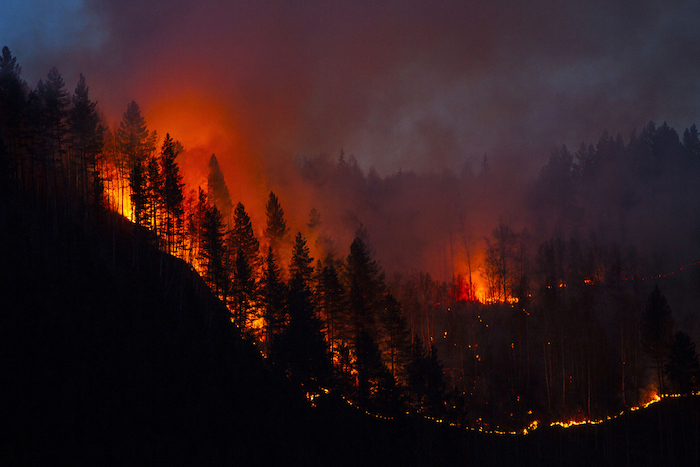COVID-19 adds disruptions as California prepares for intense fire season
- June 25, 2020
- 5:03 pm

Matt Head
Share this content
California and states in the US south-west are bracing for an intense fire season complicated by the coronavirus pandemic. With 2020 on track to be one of the hottest and driest years on record, the National Interagency Fire Centre is warning of a higher potential for fires across much of America’s west and south-west.
A historically dry winter – not a single drop of rain fell on San Francisco and Sacramento in February – followed by a hot spring has dried out fire-fueling vegetation, priming the region for an unusually early start to the fire season.
California saw fires popping up early in springtime, with bigger, faster wildfires picking up in recent weeks amid hot and dry conditions that could persist for months. Hundreds of firefighters have been deployed to multiple blazes across Arizona, with the fifth-largest fire in the state’s history burning northeast of Phoenix. A number of smaller fires in California over the past two weeks also prompted evacuations.
“Unfortunately we’re already seeing a bit of a preview of what’s to come,” said Daniel Swain, a climate scientist at the Institute of the Environment and Sustainability at the University of California, Los Angeles.
“That doesn’t necessarily mean that some sort of historical, catastrophic blaze is assured,” Swain said. “It just means that the risk is a lot higher this year than it would normally be, so I’m keeping my fingers crossed that we get lucky and there are relatively few ignitions.”
The response to these blazes has been understandably complicated due to the coronavirus pandemic. Officials are asking the public to leave their homes to seek safety – the opposite of what public health guidelines have dictated in the past four months.
To mitigate the risk of coronavirus spreading, the Red Cross has arranged for more, smaller evacuation shelters, with staff on site to check temperatures and screen for Covid-19. But eradicating the risk entirely is impossible, since the virus spreads most efficiently in crowded, indoor spaces, and can be stealthily passed by people who show no symptoms.
The coronavirus also threatens to sideline wildland firefighters. They’re exposed to large amounts of smoke that could aggravate their lungs and cause complications if they were to contract the disease. And they normally station at crowded camps for days near major blazes, where they may have few opportunities to wash their hands.
California’s fire agency CalFire is going to recommend that crews space out sleeping areas, and arrange for firefighters to eat and receive instructions in smaller groups, said Robert Foxworthy, a spokesman for CalFire.
“We have a lot of ideas about what we can do to mitigate risks,” he said. “But this is still kind of uncharted territory. Everybody is learning as we go.”



